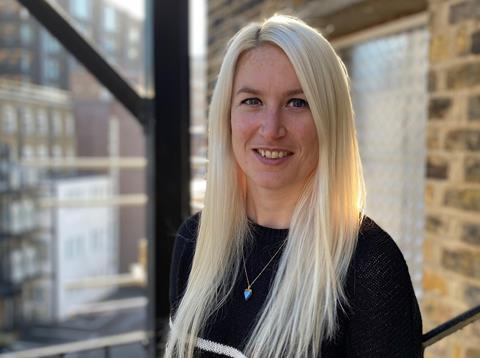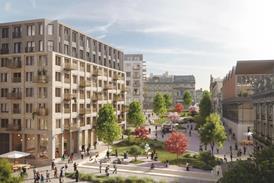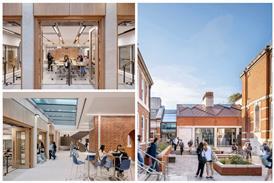We have a responsibility to speak up about projects that are ethically questionable. Only by challenging the status quo can we achieve change, writes Anna Beckett

In recent months the ethics of the way we design have been questioned more than ever before. Whether that’s demolishing an existing building to make way for something that might be more sustainable, relocating local people to allow for gentrification or building in countries that might not have the same human rights rules that we do - it’s all too easy to find ourselves working on projects that we don’t necessarily agree with.
But is there actually anything we can do about it? And is it sensible or even possible to say no to these projects?
For most of us the decision feels like it’s out of our hands. We are all part of larger organisations that have to make money to survive and if we’re turning down projects then there will be someone else willing to pick them up.
Besides, is it even our responsibility to make these choices?
With a recession on the horizon and a cost-of-living crisis in full flow, having the mental and emotional capacity to make it through the week can be a challenge, let alone making decisions about the ethics of the way we work. Plus, these issues can be hugely complex – providing new homes seems like a positive change but if lower income residents are being displaced as a result, then “new” doesn’t feel quite so shiny anymore.
Besides, is it even our responsibility to make these choices? Maybe we should be leaving decisions about what and how we build to planners and governments. After all, they are in a position to make bigger changes than we, as designers, ever will be.
But unfortunately, regulatory change is slow and I’m not sure we have time to wait for that - particularly when it comes to climate change. Will embodied carbon eventually be regulated by law? Yes, probably. Will that happen quickly enough to help keep us on track for limiting global warming to 1.5°C? It seems unlikely.
When it comes to sustainability shouldn’t we be taking a similar approach?
It’s really easy to convince yourself that you don’t have the power to change anything, if the client wants something then that’s what they get. But it’s important to remember that they are paying for your expertise and that applies to every aspect of the design.
If a client wanted to proceed without planning permission, you would advise them that they shouldn’t, you would outline the risks and you would try and encourage them to do the right thing. When it comes to sustainability shouldn’t we be taking a similar approach?
Just because a client isn’t interested in that aspect of the design it doesn’t mean we shouldn’t try and persuade them. And if every architect and engineer the client deals with first suggests a more sustainable design, they’re much more likely to build in that way eventually.
…we need to start to make our voices heard
Being involved with a project that you don’t agree with can be challenging, but in that situation there’s more opportunity than any other to make a difference. If you’re able to explain your point of view, maybe you can make someone else understand it too. And even if that change doesn’t come this time, maybe it will next time.
As the quote goes “the only thing necessary for evil to triumph is that good men do nothing”. Perhaps a little outdated these days but the sentiment rings true. Doing something, anything, is better than doing nothing. And if the only thing you can do right now is speak up, then that’s still something.
As we’re faced more and more with a choice between what’s right and what’s easy or cheap, we need to start to make our voices heard. We have the power to change things, we just need to believe that we do.
Postscript
Anna Beckett is an associate director at Symmetrys
















No comments yet